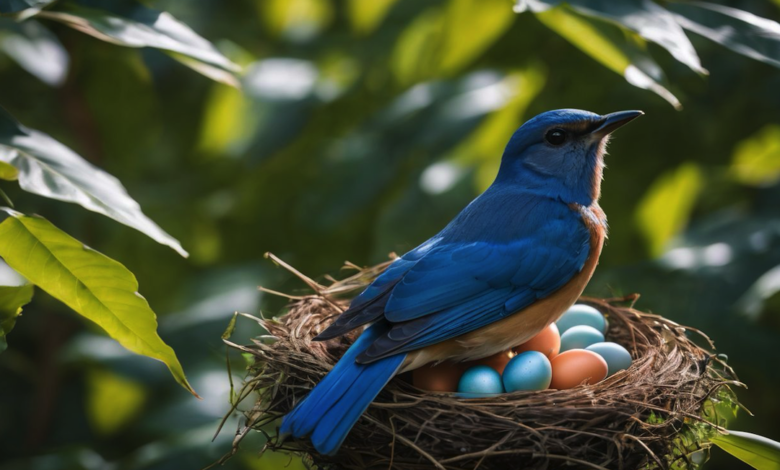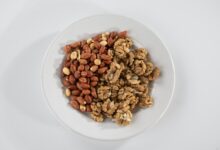What Bird Has Soft Shell Eggs Understanding the Causes and Solutions

When you ask, What Bird Has Soft Shell Eggs, it usually points to a health issue that requires attention. Soft eggshells are not typical for most birds, and when they appear, it could be a sign of something wrong in their diet or environment. Understanding why this happens and how to address it is key to ensuring your birds stay healthy and productive.
Birds like chickens, ducks, and even some exotic birds may sometimes lay eggs with softer-than-normal shells. These soft eggs can be caused by several factors, including nutritional deficiencies, stress, or age. In this article, we’ll explore why certain birds may lay soft shell eggs and how to help your feathered friends return to laying strong, healthy eggs.
What Bird Has Soft Shell Eggs? Common Causes Explained
When you ask what bird has soft shell eggs?, you’re likely worried about the health of your bird. Soft eggshells are not normal and usually happen for a reason. The most common cause is a lack of essential nutrients in the bird’s diet, especially calcium. Without enough calcium, a bird’s body struggles to form a strong eggshell, which can lead to soft or even broken eggs.
Aside from nutrition, stress can also affect a bird’s egg quality. Birds are sensitive creatures, and loud noises, changes in temperature, or overcrowded living conditions can cause them to lay soft-shelled eggs. Even small disturbances can affect their health and egg-laying abilities. If a bird is laying soft eggs, it’s essential to first check their environment for stressors.
Additionally, the age of the bird is another factor. Older birds tend to have weaker eggshells, even if their diet remains the same. As they age, they may lose the ability to absorb calcium efficiently, leading to the production of soft eggs. It’s important to monitor the health of older birds and adjust their diet accordingly to ensure they still produce strong eggs.
How to Help Birds That Lay Soft Shell Eggs: Top Tips and Best Practices
If your birds are laying soft shell eggs, there are several ways you can help them. The first step is to evaluate their diet and ensure they’re getting enough calcium. Adding crushed eggshells, oyster shells, or a layer feed rich in calcium can improve the quality of eggs. In addition to calcium, ensure the diet includes other essential nutrients like Vitamin D and protein.
Here are some helpful tips to support healthy egg production:
- Increase Calcium Intake: Offer crushed eggshells or oyster shells as supplements.
- Ensure Vitamin D: Make sure your birds have enough sunlight or provide a Vitamin D supplement.
- Reduce Stress: Ensure your birds are in a calm and stress-free environment.
- Provide Enough Space: Avoid overcrowding and ensure your birds have enough room to roam and relax.
If these steps don’t help, it might be time to consult a vet. A veterinarian can check for underlying health issues and recommend specific treatments. Regular health check-ups are important to ensure that your birds stay healthy and productive.
Conclusion
In conclusion, soft shell eggs in birds can be caused by several factors, including poor nutrition, stress, and aging. The key to solving this issue is identifying the root cause and making necessary changes to your bird’s diet, environment, or care routine. Calcium is one of the most important nutrients for strong egg shells, so make sure your birds have enough of it. Reducing stress and creating a comfortable living space also plays a big role in promoting healthy egg production.
By taking the right steps, such as providing proper nutrition, reducing stress, and offering enough space, you can help your birds lay strong, healthy eggs again. If problems persist, it’s always a good idea to consult a veterinarian to ensure your birds are in good health. Remember, a little extra care goes a long way in ensuring your birds are happy and productive.
FAQs
Q: What bird has soft shell eggs?
A: Birds like chickens, ducks, and some exotic birds can sometimes lay soft shell eggs due to issues with their diet, stress, or age.
Q: Why do birds lay soft eggs?
A: Soft eggs are usually caused by a lack of calcium, stress, or aging, which affects their ability to form strong eggshells.
Q: How can I stop my birds from laying soft eggs?
A: You can help by improving their diet with calcium-rich foods, reducing stress, and ensuring they have enough space and sunlight.
Q: Do older birds lay soft eggs?
A: Yes, older birds may have trouble absorbing calcium, which can lead to soft eggs. A special diet can help them produce stronger eggs.
Q: Can stress cause soft shell eggs in birds?
A: Yes, stress from loud noises, overcrowding, or environmental changes can cause birds to lay soft eggs. Creating a calm environment is important for their health.





